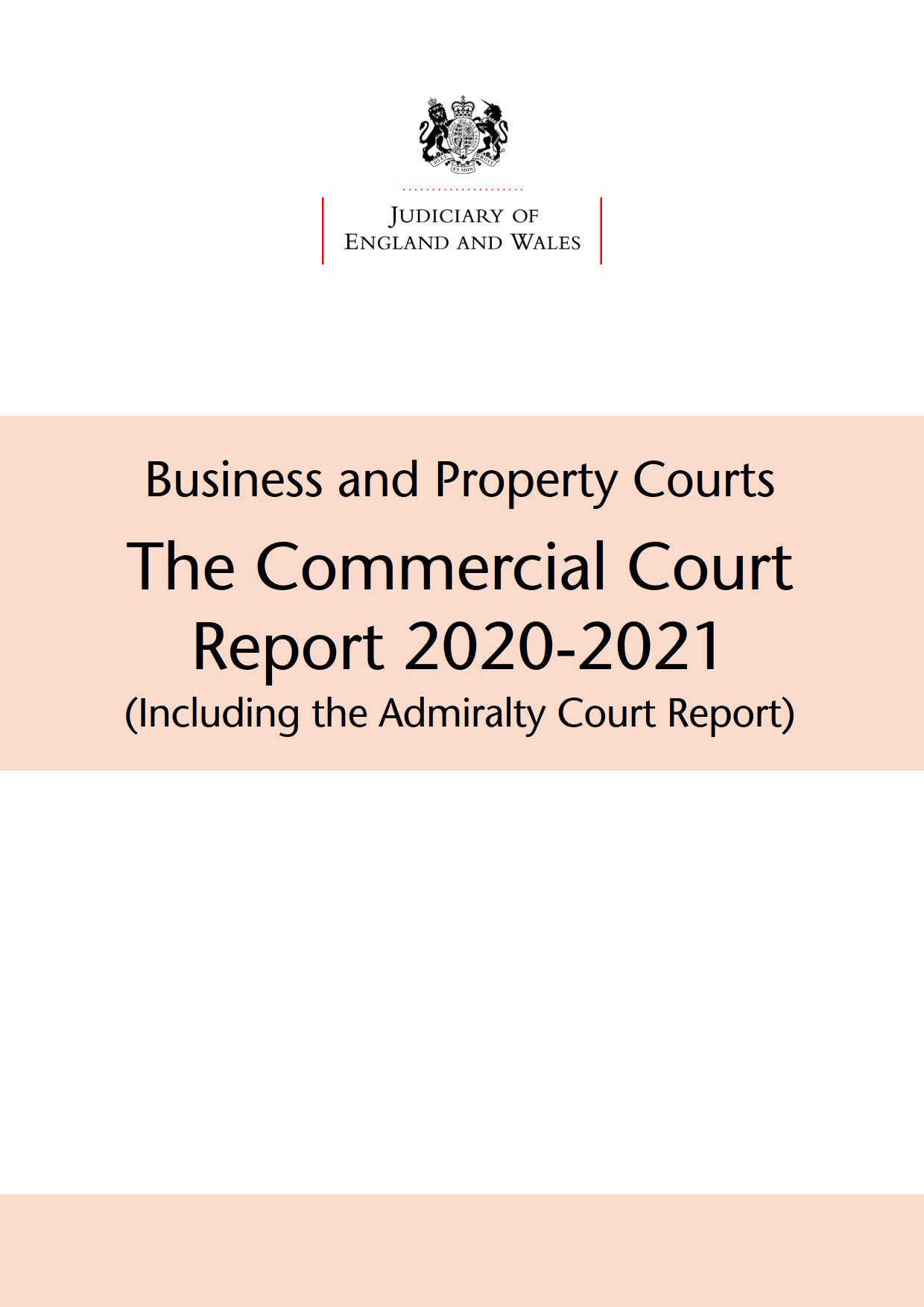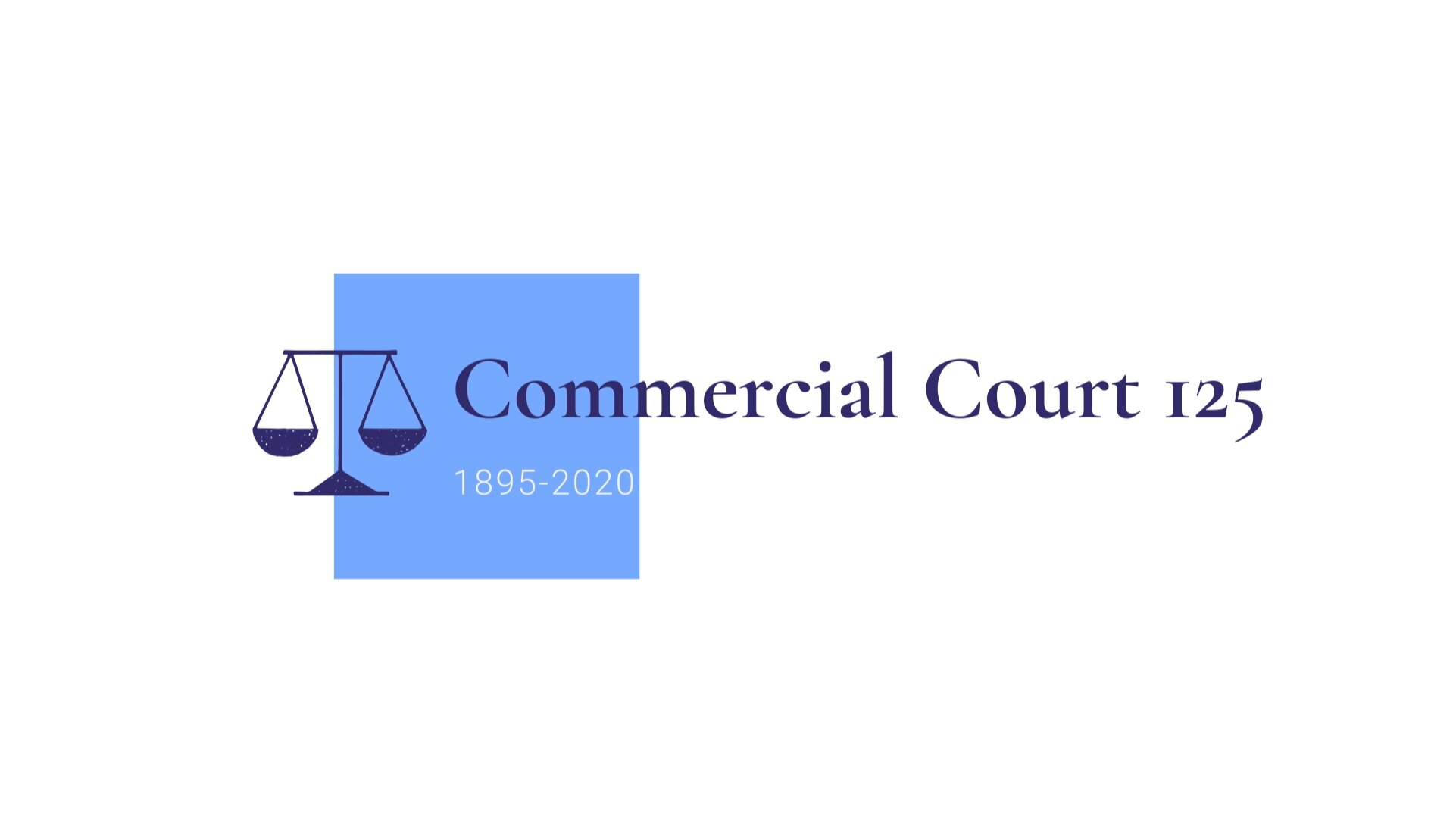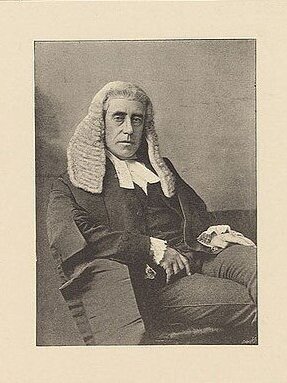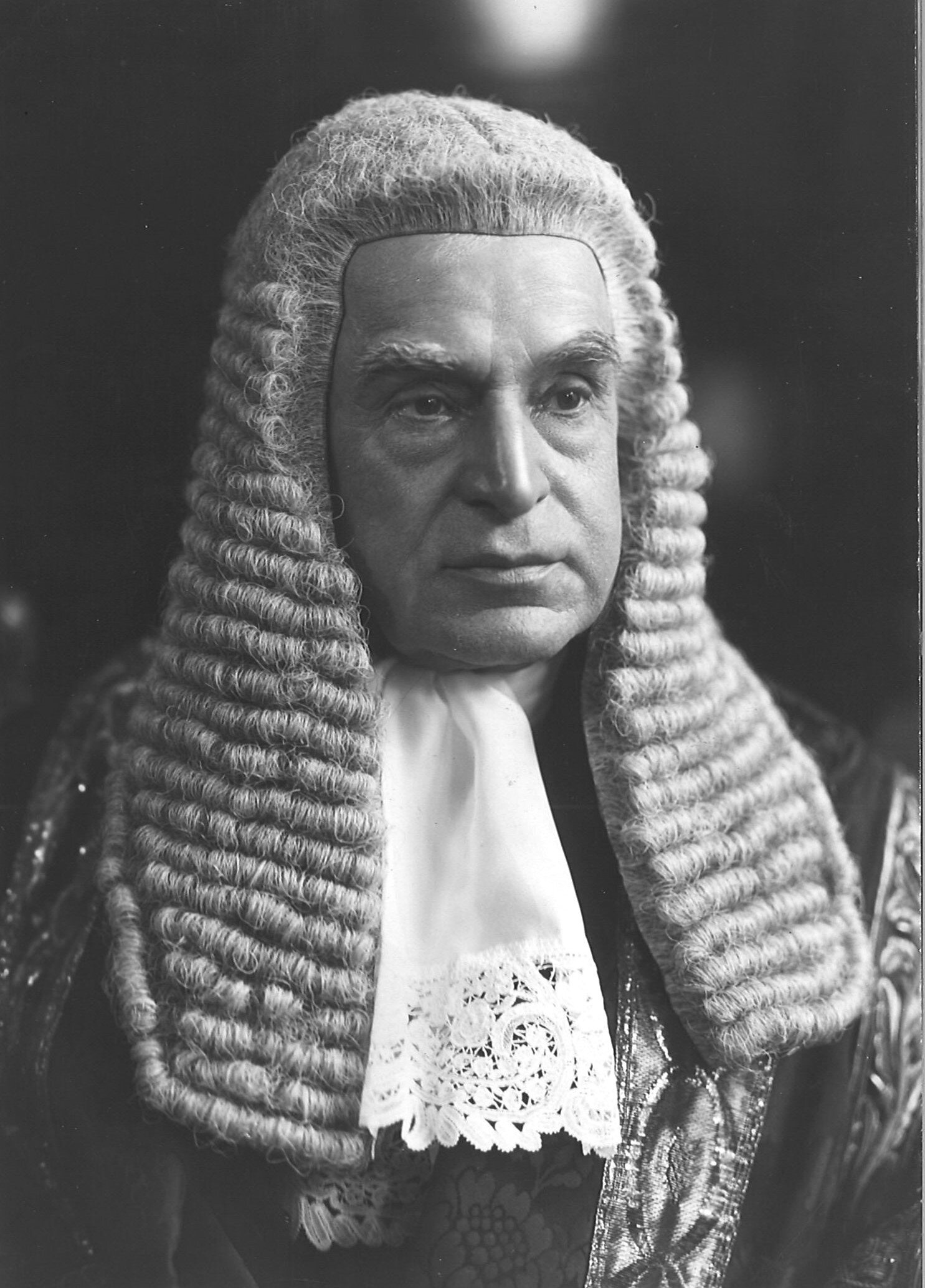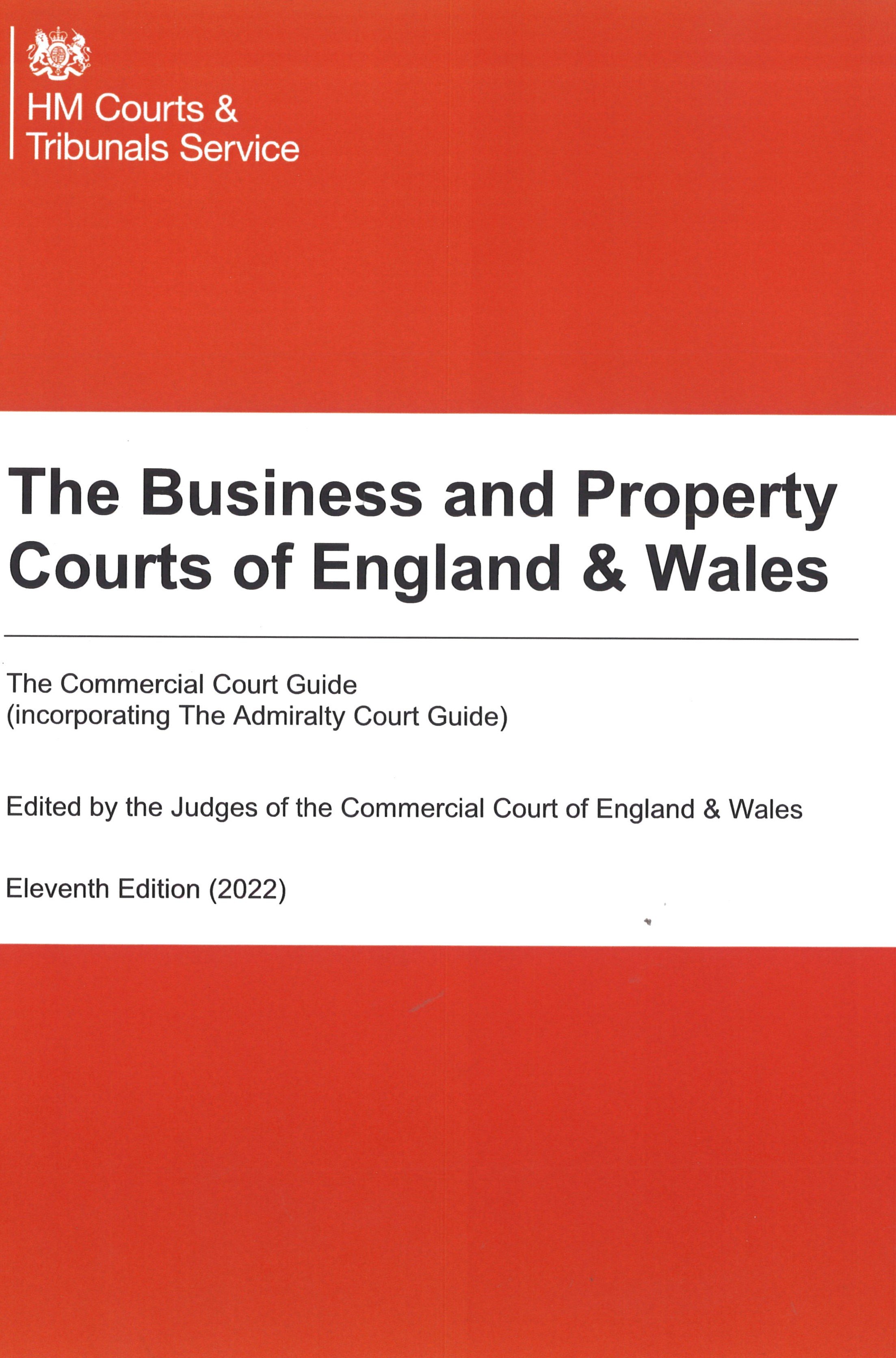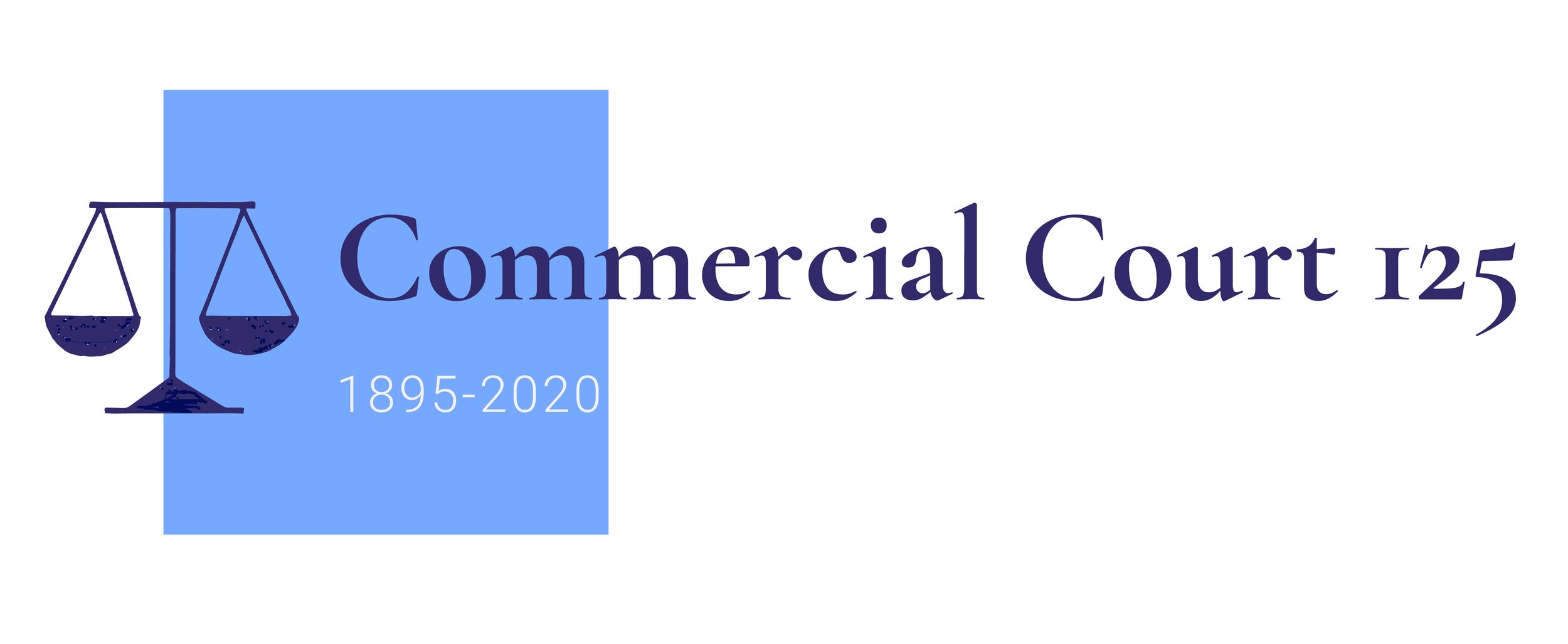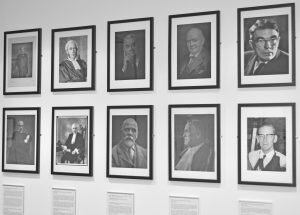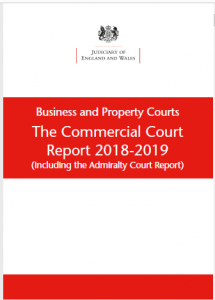Commercial Court Users Group (22nd May 2022)
The latest meeting of the Commercial Court Users Group heard that the Court remains busy. Insurance claims for business interruption caused by Covid continue to come through, with three due to be tried in the summer, and the Court expects to start seeing litigation relating to sanctions imposed on Russia. But although the Court’s caseload is buoyant, lead times for hearings have come down slightly compared with a tear ago. The Court continues to hear shorter hearings (up to half a day, including the Friday List) remotely by default, with live appearances the default for longer hearings.
The Judges emphasised that the practice for paper applications has changed in the latest application of the Commercial Court Guide (a draft of the application must now be sent to all other parties in advance), but that litigants frequently fail to comply with the new requirements. They also referred to the fact that a large volume of business transactions in England & Wales are conducted outside London, and highlighted the resources which are available for trying commercial cases outside the capital: the Circuit Commercial Courts provide dispute resolution services in the main regional centres, and Commercial Judges are happy to sit outside London for larger cases which have strong local connections.
The minutes of the meeting are here. For minutes of previous meetings, click here.
The Users Group is a forum for discussion between the Commercial Judges, legal practitioners and commercial clients who use the Commercial Court, and others with a close interest in the Court’s work, such as members of the arbitration community. For more information, please contact The Secretary to the Commercial Court Users Committee, 7 Rolls Building, Fetter Lane, London EC4A 1NL. e-mail: comct.listing@justice.gov.uk.
Enforcement Of Judgments After Brexit (17th May 2022)
Delivering the Gray’s Inn & City of London Law School Joint Annual Lecture, Commercial Judge Mr Justice Foxton spoke on the topic of the enforcement of judgments of English & Welsh Courts in a post-Brexit legal environment. Noting that ease of enforcement of judgments is an essential requirement for an effective and successful legal system, Mr Justice Foxton discussed various available techniques for securing enforcement in commercial actions, including pre- and post-judgment freezing injunctions, information orders, notification injunctions, and cross-examination of judgment debtors as to their assets, and suggested some potential procedural changes to improve their effectiveness.
Read Mr Justice Foxton’s lecture here.
Liverpool & Commercial Litigation (3rd May 2022)
Mr Justice Cockerill, Judge In Charge Of The Commercial Court, delivered a lecture at Liverpool Law School celebrating the city’s significant contribution to the judiciary of the Commercial Court and to the development of commercial law. In her lecture (which you can read here), Mrs Justice Cockerill spoke of how, as one of the main hubs of Britain’s international trade, Liverpool was a source of milestone cases in the law of contract, marine insurance, and shipping. She also touched on the careers of some of the prominent Commercial Judges who began their careers in the Liverpool Courts, including the first Lord Russell of Killowen, Viscount Mersey, Lord Justices Greer and Sellers, and Mr Justice Walton. Mrs Jutice Cockerill noted that Liverpool remains a major business centre today, and that commercial disputes can still be tried locally, in the Circuit Commercial Court.
Commercial Court Practice Note (30th March 2022)
A new Commercial Court Practice Note emphasises that oral hearings exist for the presentation of the parties’ arguments, including submissions on the law, and that it is not acceptable practice for advocates to provide a list of documentary references or case extracts and expect the Judge to read the material after the hearing. Parties must therefore give careful advance consideration to what arguments and materials will have to be dealt with at any hearing, and provide the Listing Office with realistic time estimates which are sufficient to accommodate the necessary oral submissions. If the Court concludes that a time estimate is inadequate, it may adjourn the hearing to a later date with a more realistic time estimate (either in advance or at the hearing itself). Relisting in such circumstances will not be expedited.
The Court also encourages parties, in the interests of proportionality and efficiency, to give careful consideration to which points it is really useful or appropriate to run at any hearing.
Read the new Practice Note here.
Lecture In Memory Of Edmund King QC (8th March 2022)
Commercial Judge Mr Justice Foxton delivered a lecture organised by Combar in memory of Edmund King QC, a prominent and popular commercial barrister at Essex Court Chambers, who died from cancer in 2020 aged only forty-five.
Taking inspiration from Edmund’s love of France and all things French, Mr Justice Foxton posed the question: “What have the French ever done for us?” In answer, he highlighted the significant influence (often, but not always beneficial) of Robert Pothier and other French theorists on the development of English contract doctrine during the 19th century, and analysed parallels between the French principle of non-cumul and the approach of English law to the availability of alternative remedies where a defendant owes concurrent duties. Turning his question around, Mr Justice Foxton concluded the lecture by looking at common law influences on the French contract law reforms of 2016.
Link to Mr Justice Foxton’s lecture here; and read Edmund’s classic account, entertaining and informative in equal measure, of “How to lose a case” here.
The Commercial & Admiralty Court Report, 2020 - 2021 (28th February 2022)
The latest Commercial & Admiralty Court Report has been published, covering the legal year 2020 - 2021. The annual Report provides detailed information about the quantity and types of business handled by the Commercial Court, Admiralty Court, and London Circuit Commercial Court.
The statistics for the 12 months covered by the latest Report indicate that the overall level of work was comparable with that for 2019 - 2020. A small reduction in the number of new claims commenced in the Commercial Court was matched almost exactly by an increase in the number of new London Circuit Commercial Court cases, suggesting an increased recognition by litigants and their advisers that the latter Court is the appropriate jurisdiction for smaller commercial actions. The combined total of new claims across these two Courts was a little over 1,300. There was a total of around 1,000 hearings, which was again similar to the previous period, although there was a significant increase in the number of applications dealt with on paper without a hearing. 42 cases were tried in the Commercial Court. Nearly twice as many settled before the listed trial date, which has been a consistent trend in recent years. Only 1 case was tried in the Admiralty Court, although the Court saw a significant uplift in the numbers of arrests and ship sales, and the total number of hearings was greater than in the previous year. There were 41 London Circuit Commercial Court Trials.
As for many years, the very high proportion of cases categorised as “international” (ie, as involving events occurring outside England & Wales and/or involving at least one overseas party) demonstrates the Commercial Court’s pre-eminent position in global commercial dispute resolution: nearly 75% of the Court’s work in 2020 - 2021 was international in nature.
The Commercial Court is the principal supervisory Court for arbitrations seated in England & Wales, and arbitration claims continue to represent a significant proportion of its workload. The number of challenges to arbitration awards under the Arbitration Act 1996 was roughly in line with the previous 12 month period. Overall, the majority of challenges continue to be unsuccessful.
There were various practical developments during 2020 - 2021, intended to refine and improve the Court’s procedures. Practice Direction 57AC, which is designed to identify and promote best practice in the preparation of witness statements, came into effect, as did revisions to the Disclosure Pilot. Following the Court’s successful deployment of remote working during various lockdowns, a decision was made to conduct most shorter hearings virtually as a matter of routine. The 11th Edition of the Commercial Court Guide was written during the period covered by the Report, and came into effect in early 2022.
In two areas, the year proved more conspicuous for what did not happen than for what did. Although the UK’s departure from the Common Market necessitated some procedural changes (eg, in relation to applications for permission to serve proceedings against European defendants), the avalanche of Brexit litigation which had been anticipated in some quarters did not eventuate; and Covid restrictions did not disrupt the Court’s business at all.
The 2020 - 2021 period included the 125th anniversary of the foundation of the Commercial Court, and the Report contains details of various events which were organised to mark that milestone and to look forward to the Court’s next century and a quarter.
Read the Commercial & Admiralty Court Report 2020 - 2021 here.
Commercial Litigation In Newcastle & Tyneside (3rd February 2022)
In a speech to the Newcastle Business & Property Courts Forum, Mrs Justice Cockerill, Judge In Charge Of The Commercial Court, reflected on the fruitful history of commercial litigation in Newcastle, and on the contribution to the work of the Commercial Court made by two significant judicial figures born and brought up on Tyneside, Newcastle’s Gainsford Bruce, and South Shields’. Robert Wright. Mrs Justice Cockerill also met practitioners and users of the Newcastle Circuit Commercial Court, and participated in a Question & Answer session with students from Northumrbia University.
Read Mrs Justice Cockerill’s talk on “The Changing Face Of Commercial Litigation In Newcastle & Tyneside” here.
11th Edition Of The Commercial Court Guide (3rd February 2022)
The 11th Edition of the Commercial Court Guide & Admiralty Court Guide has been published, with the approval of the Lord Chief Justice of England & Wales, Lord Burnett of Maldon. It supersedes the 10th Edition, which was published in 2017. Developments in the new edition include changes to the sections dealing with disclosure and witness statements, to reflect updates to the Disclosure Pilot and the introduction of the new Practice Direction 57AC, which applies to witness statements in the Commercial and Admiralty Courts. There is a renewed emphasis on the use of technology for trials and other hearings - including electronic bundles and use of remote platforms - which builds on the Court’s experience during lockdown; and a general encouragement to litigants in the Commercial and Admiralty Courts to give close thought at an early stage of each case to what evidence (documentary, factual witness, and expert witness) is necessary to decide the issues which really matter.
The Commercial Court Guide sets out the procedures which are normally adopted in the Commercial Court to ensure effective case management. The 1st Edition was published in 1986, and it has been regularly updated since then. The Guide does not override the provisions of the Civil Procedure Rules, which apply to the Commercial and Admiralty Courts as part of the Queen’s Bench Division. But it reflects the collective experience of the Commercial Judges - who write the Guide, in consultation with Court users through the Commercial Court Users Committee and professional organisations - of how those Rules can best be applied to commercial disputes. The Judges will therefore generally expect the Guide’s procedures to be adopted (subject to the flexibility which is deliberately built-into the Guide) in the majority of cases in the Commercial and Admiralty Courts.
Read the 11th Edition of the Commercial Court Guide here.
The New Circuit Commercial Court Guide (3rd February 2022)
The latest edition of the Circuit Commercial Court Guide has been published. The Guide sets out the procedure normally to be followed in the Circuit Commercial Courts which deal with smaller and less complex commercial disputes in Birmingham, Bristol, Cardiff, Leeds, Liverpool, Manchester, Newcastle, and (as part of the Commercial Court) in London. The Guide supplements the Civil Procedure Rules by establishing a case management and procedural framework tailored to the types of case usually listed in the Circuit Commercial Courts. It cross-refers to the Commercial Court & Admiralty Court Guide, a new edition of which is published at the same time.
The Circuit Commercial Court Guide is written by the Judges of the Circuit Commercial Courts. Read the 2022 edition here.
Contractual Estoppel - The Case For Coherent Principles (13th January 2022)
The 5th Annual Jill Poole Memorial Lecture, which Mrs Justice Cockerill, Judge In Charge of the Commercial Court, delivered at Aston University in November 2021, is now available to watch online.
The series of annual lectures honours Jill Poole, Aston’s Head of Law and Professor of Commercial Law, who died in 2016.
Mrs Justice Cockerill spoke on the evolving concept of so-called “contractual estoppel”, which has been considered in a number of recent cases, and has generated a lively debate among lawyers, both professional and academic.
You can watch Mrs Justice Cockerill’s, and previous lectures in the series, here.
New Trial Listing Arrangements (22nd December 2021)
The listing arrangements for trials in the Commercial and Admiralty Courts will change in January 2022. At present, trial hearings are generally listed to start at the beginning of a working week, with judicial pre-reading in the preceding week. From January, trials will be listed for a composite time estimate, inclusive of pre-reading, which will usually run from the beginning of a working week. The Court will decide at the PTR (or, if there is no PTR, on the basis of pre-trial correspondence) to what extent the judicial pre-reading should take place before the oral openings.
The new arrangements are set out in a Practice Note here.
Commercial Court Users Group (2nd December 2021)
The Commercial Court Users Group held its latest meeting remotely on 24th November 2021. The minutes are here.
Latest statistics show that a combined total of 1,085 claims has been commenced in the Commercial Court and the London Circuit Commercial Court in 2021. This is very similar to 2020, but the proportion of the total which were commenced in the London Circuit Commercial Court has increased. The Commercial Court regards this as welcome, because commencement of smaller cases in the Circuit Commercial Courts takes pressure off the Commercial Court and helps bring lead times down. Recent Commercial Court leadtimes have been longer than the Court would like, particularly for 1 day hearings, the number of which has increased significantly in recent years. The Court is taking steps to address this. These will include reviewing smaller claims before a CMC, to see whether they should remain in the Commercial Court or be more appropriately transferred to a Circuit Commercial Court.
Among other matters discussed, the Judge In Charge of the Commercial Court commented that the Judges are concerned that applications and cases are increasingly being presented as more urgent than they really are, and emphasised that the Court will scrutinise claims of urgency very carefully, and that Court 37 and the out of hours procedure are designed for genuine emergencies; the Listing Officer clarified circumstances in which it is neither necessary nor helpful for solicitors to phone or e-mail Listing with inquries and chasers; and there were reports on the progress of the drafting of the next edition of the Commercial Court Guide, the working of the Disclosure Pilot, and arrangements for the management of Covid-related business insurance cases.
The Users Group is a forum for discussion between the Commercial Judges, legal practitioners and commercial clients who use the Commercial Court, and others with a close interest in the Court’s work, such as members of the arbitration community. For more information, please contact The Secretary to the Commercial Court Users Committee, 7 Rolls Building, Fetter Lane, London EC4A 1NL. e-mail: comct.listing@justice.gov.uk.
New Guidance On Electronic Bundles (30th November 2021)
The General Guidance on the preparation of electronic bundles for use in Court hearings has been revised and updated. This Guidance applies to Commercial Court hearings in which electronic bundles are used.
Read the new Guidance here.
Valedictory For Sir Michael Burton GBE (5th November 2011)
Mrs Justice Cockerill, Judge In Charge of the Commercial Court, and Selwyn Bloch QC, made speeches at a valedictory to mark Sir Michael Burton GBE’s contribution to the Commercial Court and his final retirement from judicial work.
Sir Michael Burton was called to the Bar by Gray’s Inn in 1970 and practised from Littleton Chambers. He became a QC in 1984, and was a Recorder and the head of Chambers at Littleton before he was appointed to the High Court Bench in 1998. As a Judge, Sir Michael sat in the Employment Appeal Tribunal and occasionally in the Chancery Division, as well as in the Commercial Court. He became President of the Employment Appeal Tribunal and of the Investigatory Powers Tribunal. Although he formally retired in 2016, he has continued to sit regularly in the Commercial Court as an additional Judge. Sir Michael was knighted on his appointment to the Bench, and was made a Knight of the Grand Cross of the Order of the British Empire in 2019.
Commercial Court Webinar: Topical Issues In Shipping Law (12th October 2021)
On 12th October 2021, the Commercial Court hosted a webinar on a range of highly topical shipping law issues. Lord Hamblen, formerly a Commercial Judge and now one of the Justices of the Supreme Court of England & Wales, moderated this event, which consisted of:
A discussion by Commercial & Admiralty Judge Mr Justice Baker and Thomas Raphael QC of Twenty Essex Chambers of English law’s approach to the the important jurisdictional issue of the incorporation of charterparty arbitration clauses into bills of lading.
An analysis by Simon Rainey QC of Quadrant Chambers of the classification of terms in shipping contracts, discussing whether judicial preference for innominate terms over conditions has made it too difficult for an “innocent party” to terminate a shipping contract for the other party’s breach.
An overview by Rebecca Sabben-Clare QC of 7 King’s Bench Walk of major aspects of the approach of English law to the interpretation of charters, including consideration of the relative importance of printed versus bespoke clauses, and the significance of market circulars and publications.
The Inaugural Arnould Lecture (29th September 2021)
Commercial Judge Mr Justice Jacobs delivered the inaugural Arnould Lecture on 29th September 2021.
This new lecture series marks the key contribution to the development of English insurance law made by successive editors of twenty editions (to date) of ‘Arnould On The Law Of Marine Insurance & Average’. Taking insurance as his topic, Mr Justice Jacobs addressed the question “Can You Judge A Policy” by its cover, and considered the importance of the contractual text, relative to the “factual matrix” and other considerations, in the resolution of policy disputes.
Mt Justice Jacob’s lecture is available to watch here.
New Guidance On Remote Hearings In The Commercial Court (15th September 2021)
New guidance has been issued on the format which hearings in the Commercial Court will take in the light of ongoing Covid issues.
Until further notice, the default position will be that hearings under half a day will be conducted remotely. This is subject to the Court’s discretion to make alternative directions, but the Court will only direct a live hearing if there is a particular reason why that is more appropriate.
For longer hearings, the Court will determine the format on the basis of the circumstances of each case. The parties will be asked by the Listing Office to express their preferences, but the Court’s decision will ultimately be determined by the interests of justice in all of the circumstances.
The default format for bundles will remain electronic (PDF) until further notice, and parties should only lodge hard copy bundles if specifically requested by the Court. The existing General Guidance On PDF Bundles continues to apply.
The full text of the new guidance is here.
Learning Our ABC’s: Thoughts After Brexit & Covid (16th June 2021)
Mrs Justice Cockerill, Judge In Charge Of The Commercial Court, delivered the keynote speech at the Dispute Resolution Forum 2021.
Reflecting on the impact of lockdown on the conduct of cases in the Commercial Court, and looking ahead to the potential implications of Brexit, Mrs Justice Cockerill considered how virtual hearings may affect the way in which witnesses give evidence, and the importance of ensuring that remote working practices do not deprive more junior lawyers of the valuable learning opportunities which attendance at physical hearings has traditionally provided. She also emphasised the importance of preserving the factors which have made England & Wales a global centre for the resolution of England & Wales, and discussed ways in which the Court might improve procedural effectiveness to maintain its international position post-Brexit.
Read the speech here.
Commercial Court Report 2019 - 2020 (14th May 2021)
The latest Commercial Court Report is now available, covering the legal year from October 2019 to October 2020.
The Commercial Court Report is published annually and contains information and statistics about the volume and type of work undertaken by the Court in the previous year. The Report includes the Admiralty Court Report. This year, for the first time, it also extends to the London Circuit Commercial Court, which deals with smaller commercial cases in London.
This years statistics show an increase in the number of new claims and the number of hearings in both the Commercial Court and the Admiralty Court compared to 2018-2019. There was a slight decrease in the number of new claims in the London Circuit Commercial Court, but a significant increase in the number of hearings. The uplift in work across the three Courts was achieved in spite of the impact of the pandemic and lockdown, which saw almost all hearings moved out of the courtroom and online between April and October 2020. The three Courts conducted around 600 virtual hearings during that six month period.
As in previous years, a high percentage of the Commercial Court’s work related to arbitration, mostly appeals from or challenges to arbitration awards under the Arbitration Act 1996. Around 25% of cases in 2019-2020 were arbitration claims.
The percentage of Commercial Court cases with an international character remained stable compared to previous years, at about 75%.
Read the Report here.
Commercial Court Users Group (28th April 2021)
The Commercial Court Users Group met virtually on 28th April 2021. The minutes are here.
The Users Group is a forum for discussion between the Commercial Judges, legal practitioners and commercial clients who use the Commercial Court, and others with a close interest in the Court’s work, such as members of the arbitration community.
Topics discussed at the meeting included plans for a gradual return to “in person” hearings as lockdown restrictions ease. Although most Commercial Court hearings are still being conducted remotely, a number of longer hearings have been held in person during 2021, and the Court anticipates that most trials will be conducted wholly or partially in person from May 2021. Shorter hearings, including applications heard on Fridays, are likely to remain virtual for the foreseeable future. The Court has heard nearly 500 applications and 24 full trials since October 2020, almost all of them remotely.
The Court’s latest statistics show that 430 claims and more than 500 applications have been issued since the beginning of 2021. These figures are broadly consistent with the level of business during the same period in 2020.
The Judges told the meeting that a new edition of the Commercial Court Guide (the 11th) is in hand, and is expected to be published by the end of the year. Among the procedural matters which are under consideration is how the Court should approach proof of foreign law, and, in particular, whether full expert evidence, including written reports and cross-examination is always really necessary.
The Judges also emphasised that they recognise the vital importance of ensuring that junior advocates, who are the future of the profession, have the opportunity to make oral submissions in the Commercial Court. They encouraged leaders and solicitors actively to consider allocating parts of the advocacy at hearings to more junior practitioners.
For more information about the Users Group, please contact The Secretary to the Commercial Court Users Committee, 7 Rolls Building, Fetter Lane, London EC4A 1NL. e-mail: comct.listing@justice.gov.uk.
3rd Meeting of SIFoCC (12th March 2021)
Sir Julian Flaux, Chancellor and Supervising Lord Justice of the Commercial Court, Mrs Justice Cockerill, Judge In Charge Of The Commercial Court, and Commercial Judge Mr Justice Robin Knowles were among the delegates from the Court of Appeal and High Court of England & Wales who attended the 3rd meeting of SIFoCC, the Standing International Forum of Commercial Courts. They were joined by the Lord Chief Justice, Lord Burnett of Maldon, who delivered the closing address, and Sir Geoffrey Vos, the Master of the Rolls. The meeting, which was hosted by the Singapore International Commercial Court, took place virtually over 2 days, and was attended by representatives from 17 commercial courts around the world.
SIFFoC exists as a forum for the exchange of judicial experiences and ideas with a view to the promotion of best practice in the resolution of commercial disputes through court systems. Recordings of sessions from the 3rd meeting can be viewed here.
The Private Law Implications Of Public Law Illegality (24th February 2021)
In a lecture organised by the London Common Law Bar Association and the Administrative Law Bar Association, Commercial Judge Mr Justice Foxton considered the possible implications for private law claims against local authorities and other public bodies of a finding that the public body had behaved in a way which was unlawful as a matter of public law. The potential for public law illegality to affect private law claims against public bodies in a commercial context was illustrated by the interest-rate swaps cases in the 1990’s. Mr Justice Foxton explained, by reference to more recent cases, that public law illegality retains the capacity to have an impact on contracts and other private law arrangements involving central and local government entities. Read his lecture here.
Practice Note: Witness Statements In Admiralty Claims (19th February 2021)
Practice Direction 57AC, which governs the preparation of witness statements for use at trial, comes into force in the Commercial Court on 6th April 2021. The Practice Direction does not yet apply to cases in the Admiralty Court, but the Admiralty Court Users’ Committee has recommended that it should do, and it is anticipated that the Practice Direction will be extended to Admiralty actions before the end of 2021.
The Admiralty Judge, Mr Justice Andrew Baker, has issued a Practice Note containing guidance on the potential application of the Practice Direction in Admiralty actions. In particular, the Practice Note indicates how the Court will approach applications for dispensation from the formal requirements of the Practice Direction in relation to witness evidence collected in the immediate aftermath of a maritime casualty or incident.
Practice Direction: Witness Statements In The Commercial Court (18th February 2021)
Practice Direction 57AC on witness statements for use at trial will come into effect in the Commercial Court on 6th April 2021. The requirements of the Practice Direction will apply to any statement of a witness of fact which is signed on or after that date. The Practice Direction is intended to ensure best practice in the preparation of witness statements. It states rules for the content of witness statements and for confirmations of compliance which must be signed by witnesses and by legal representatives. The Practice Direction includes an Appendix which sets out the methodology which should be followed in the preparation of witness statements for trial.
New Chancellor of the High Court (4th February 2021)
Sir Julian Flaux has been sworn-in by Lord Burnett, the Lord Chief Justice, as the new Chancellor of the High Court.
The Chancellor is responsible for the running of the Business & Property Courts of England & Wales. This includes, in consultation with the Judge In Charge and the Admiralty Judge, supervision of the operation of the Commercial Court and the Admiralty Court. The Chancellor is a member of the Court of Appeal.
Sir Julian Flaux was called to the Bar in 1978 and practised commercial law from 7 King’s Bench Walk. He was a Judge of the Commercial Court from 2007 to 2016, and was Judge In Charge from 2014 to 2015. He has been a Lord Justice of Appeal since 2016, and Supervising Lord Justice of the Commercial Court since 2020.
Read Lord Burnett’s speech at Sir Julian’s swearing-in here.
Symposium Between The Commercial Court & Italian Judiciary (26th January 2021)
Judges of the Commercial Court and members of the Italian judiciary held a virtual roundtable discussion to exchange their experiences of remote working and of conducting hearings online during the Covid-19 pandemic. Mrs Justice Cockerill, the Judge In Charge of the Commercial Court, and Mr Justice Picken, who is both a Commercial Court Judge and the Judge responsible for European relations, spoke with Italian Judges Valeria Piccone, Luigi Marini, and Filippo Donati. The event was part of an ongoing series of meetings between members of the judiciary of England & Wales and counterparts from EU jurisdictions.
Commercial Contracts: A Thing Apart? (2nd December 2020)
The third seminar in the series organised to mark and celebrate the first 125 years of the Commercial Court considered to what extent modern English law treats commercial contracts differently from contracts which operate in other spheres.
A panel consisting of Commercial Judge Mr Justice Foxton, Professor Louise Gullifer QC, Rouse Ball Professor of English Law at the University of Cambridge, and Philippa Hopkins QC, commercial barrister at Essex Court Chambers, discussed the extent to which the “traditional” special rules for the construction of exemption clauses in commercial contracts retain their force today; the approach of the Courts to the construction of standard form contracts in the commercial world, such as charterparties and trade organisations’ sale agreements, and the evolution of the law in relation to implied terms. The event was chaired by former Commercial Judge and current Supreme Court Justice Lord Leggatt, who contributed thoughts on the role of good faith in “relational” contracts.
Register to watch a recording of the seminar here.
Commercial Court Users Group (25th November 2020)
A virtual meeting of the Commercial Court Users Group was held on 25th November 2020.
The matters discussed included the impact of Covid-19 on the working of the Court, the implications of Brexit, the operation of the Disclosure Pilot, and the series of online seminars and other events to mark and celebrate the Court’s 125th Anniversary year during 2020-2021.
Statistics were presented which demonstrate that the Commercial Court has remained very busy, notwithstanding the effects of Covid-19 and lockdown. The number of new claims issued in the past 12 months is nearly 7% higher than in the preceding year. Thanks to the success of the Court’s move to online working, the number of trials and applications listed for hearing has also increased, by 2.5%. By the date of the meeting, the Commercial Court had dealt with nearly 500 hearings remotely since the beginning of the pandemic.
Read the Minutes of the November meeting here.
The Commercial Court Users Group is a forum for discussion between Commercial Judges, barristers and solicitors who practise in the Commercial Court, and other parties who are interested in the work of the Commercial Court, including participants in the shipping, insurance, financial and other commercial markets and members of the London and international arbitration communities. Proposals raised at the Group’s meetings often make valuable contributions to developments in the Court’s practices and to the evolution of the Commercial Court Guide. For more information, please contact The Secretary to the Commercial Court Users Committee, 7 Rolls Building, Fetter Lane, London EC4A 1NL. e-mail: comct.listing@justice.gov.uk.
State Immunity & Commercial Law: An Ever Decreasing Sphere? (17th November 2020)
In the second in the series of online seminars being presented as part of the celebrations to mark the Commercial Court’s 125th birthday, Lord Justice Males chaired a discussion which looked at the inter-action between commercial litigation and public international law.
A panel consisting of Commercial Judge Mr Justice Butcher and Professors Dapo Akande (Professor of Public International Law at the University of Oxford) and Philippa Webb (Professor of Public International Law at King’s College London) considered the circumstances in which such concepts as sovereign immunity, act of state, and non-justiciability might come into play in the types of case which are litigated in the Commercial Court. The panellists also considered the various exceptions to these principles, and considered whether the exceptions have now become so broad as to significantly restrict the potential for immunities to arise in commercial cases.
Register here to watch a recording of the seminar.
Why Shipping Law Still Matters: The 38th Donald O’May Lecture (4th November 2020)
Mr Justice Foxton delivered this year’s Donald O’May Lecture, the 38th in the series. Because of the Covid-19 pandemic, this year’s event was presented virtually.
The Donald O’May Lecture is organised annually by the Institute of Maritime Law at the University of Southampton. The Lectures are named after a past senior partner at the London law firm Ince & Co. Donald O’May specialised in maritime litigation, and wrote a textbook (which was published posthumously) on English marine insurance law. The Lectures are intended to interest not only legal practitioners and academics specialising in shipping law but also people actively involved in the shipping industry and in associated sectors, such as broking and insurance.
You can watch Mr Justice Foxton’s conclusions about “Why Shipping Law Still Matters” here.
The Combar Annual Lecture 2020 (13th October 2020)
Lord Hamblen, one of the Justices of the Supreme Court, delivered the Combar Annual Lecture for 2020. This year, the lecture was virtual. To mark the Commercial Court’s 125th Anniversary, Lord Hamblen chose as his subject “The Commercial Court: Past, Present & Future”. In the lecture, he considered how the commercial’s community’s dissatisfaction with the Court system led to the creation of the Commercial Court in 1895 as a specialist forum for the resolution of commercial disputes; how the Court’s practices and procedures, have evolved and developed over 125 years to ensure that they always promote the efficient determination of commercial cases; and what challenges, changes, and opportunities the future may bring.
Lord Hamblen, who has been a Justice of the Supreme Court since 2020, was a Judge of the Commercial Court from 2008 to 2016, when he was appointed a Lord Justice of the Court of Appeal. Watch his lecture here, or read the text here.
Combar, the Commercial Bar Association, is the specialist association for barristers of England & Wales who practise commercial law. It represents around 1,600 individual barristers and 38 sets of chambers, all of whom specialise in legal advice and advocacy in commercial disputes. The Annual Lecture is part of Combar’s educational programme, which provides regular lecture, seminars and events in a wide range of topics related to commercial law, commercial litigation, and commercial arbitration.
Arbitration & The Courts: A Constructive Symbiosis (7th October 2020)
In the first of three online seminars forming part of the Commercial Court’s 125th anniversary celebrations, Mrs Justice Cockerill, Judge In Charge Of The Commercial Court, Rob Merkin QC, Professor of Law at the Universities of Exeter and Reading, and Duncan Mathews QC, joint Head of Chambers at Twenty Essex, spoke on several topical issues involving the importance of the relationship between the Commercial Court and the world of international commercial arbitration.
The event, which was chaired by Lord Justice Flaux, highlighted both the position of England & Wales as the pre-eminent location for the resolution of commercial disputes through arbitration, and the Commercial Court’s crucial role as the primary supervisory Court for arbitrations which have their seat within the jurisdiction.
The issues which were discussed included the use of the Court’s powers under the Arbitration Act 1996 and at common law to support arbitration (including injunctions to restrain breaches of arbitration clauses); challenges to arbitrators’ jurisdiction; the proper law of arbitration agreements; and whether the rules governing appeals from arbitration awards on points of law should be reformed.
You can register to watch a recording of the seminar here.
Commercial Court Seminar At The Opening Of The Legal Year (2nd October 2020)
In an online event organised to coincide with the opening of the 2020-2021 legal year and as part of the celebrations of the 125th Anniversary of the Commercial Court, Judges and legal practitioners from England & Wales, Europe, and the Commonwealth discussed practical challenges facing commercial courts in different jurisdictions, and the lessons which they could learn from one another’s experience.
The first session focused on the use of technology in commercial cases, and in particular on cross-jurisdictional experience of remote hearings during the Covid-19 pandemic. This was followed by a roundtable discussion of comparative approaches to reducing costs and delays in commercial litigation.
Commercial Court Judges Mrs Justice Cockerill (Judge In Charge Of the Commercial Court) and Mr Justice Robin Knowles participated in the discussions, alongside Judges and lawyers from France, the Netherlands, Australia and Canada, as well as practitioners and academics from England & Wales. There were introductory remarks from Chair of the Bar Amanda Pinto, Simon Davis, the President of the Law Society, and Lord Leggatt, a Justice of the Supreme Court of the United Kingdom and formerly a Commercial Court Judge.
A recording of the event is available here.
Retirement Of Mr Justice Teare (1st October 2020)
Mr Justice Teare has retired with effect from 1st October 2020 after a fourteen year career as a High Court Judge.
Sir Nigel Martin John Teare was called to the Bar in 1974 and joined the chambers at 2 Essex Court, which subsequently became Quadrant Chambers. At the Bar, he specialised in admiralty and maritime law. He was appointed Queen’s Counsel in 1991. In addition to appearing as an advocate in the Courts and in arbitration, Sir Nigel sat as a Lloyd’s arbitrator and held part-time judicial appointments in England and in his native Isle of Man, before he became a Judge of the Queen’s Bench Division in 2006. He has been the Admiralty Judge since 2013, and the Judge In Charge of the Commercial Court since 2017.
Mrs Justice Cockerill succeeds Sir Nigel as Judge In Charge of the Commercial Court. Mr Justice Andrew Baker is the new Admiralty Judge.
Pro Bono Assistance & Representation In The Commercial Court & The London Circuit Commercial Court (1st October 2020)
From 1st October 2020, the Pro Bono Representation Scheme which already operates in the London Circuit Commercial Court is being extended to hearings in the Commercial Court.
The provides free assistance and representation for litigants in person who are involved in hearings in the Commercial Court or the London Circuit Commercial Court. It applies to hearings which are listed for one day or for less than a day. The assistance and representation is provided by commercial barristers who provide their time on a voluntary basis. The Scheme is organised by the pro bono charity Advocate and by Combar, in consultation with the Commercial Court and the London Circuit Commercial Court.
You can read about how the Scheme works and how to apply for free advice and assistance in the Scheme Explanatory Note and the Scheme Protocol.
New Commercial Judge: Mr Justice Calver (1st October 2020)
Neil Calver QC has been appointed a Judge of the Queen’s Bench Division with effect from 1st October 2020. Mr Justice Calver has been nominated to sit as a Judge of the Commercial Court.
Sir Neil Calver was called to the Bar of England & Wales in 1997, and was appointed Queen’s Counsel in 1996. He was also a member of the Bars of the British Virgin Islands and Gibraltar. Sir Neil specialised in commercial litigation and arbitration, and also practised competition law and publlc law. He has been a Recorder since 2017
Practice Note: Time Estimates In Commercial Cases (28th September 2020)
Mrs Justice Cockerill, the Judge in Charge of the Commercial Court, and His Honour Judge Pelling QC, the Judge In Charge of the London Circuit Commercial Court, issued a Practice Note on time-estimates for pre-reading and hearing durations in the two Courts.
The Practice Note emphasises that under-estimating of reading time and of hearing durations has a negative impact on Judges’ ability to prepare properly for hearings and to fully deal with matters arising at hearings. This affects the efficient operation of the Court, and is unfair to parties who do provide accurate time estimates. The Note highlights that:
Pre-reading time should be estimated on the basis that the Judge has no prior familiarity with the case, and that the purpose of pre-reading is to enable the Judge to understand the nature of the case and the issues, not just skim-read a few documents.
Time estimates for shorter applications must include time for the Judge to deliver oral judgment and for costs issues to be disposed of. Particularly in hearings listed for half a day or less, this leaves comparatively little time for oral submissions, and parties must be realistic in assessing whether an application can be dealt with satisfactorily in half a day or less. Counsel will be required to provide written confirmation of the robustness of the time estimate for hearings listed for half a day or less.
If it becomes apparent that the time estimate for a hearing is inadequate, the Court may relist the hearing for another date when proper time is available, with costs consequences for the parties.
Year 126 & Onwards (7th September 2020)
Commercial Judges, practitioners, and academics, participated in an online seminar arranged as part of the celebrations of the Commercial Court’s 125th Anniversary.
Based around the theme “Year 126 and onwards: planning for the future of London’s Commercial Court”, the event was divided into three sessions. In “Virtual & Hybrid Hearings: Legacies & Lessons”, the panel discussed the experiences of Judges, practitioners, and other Court users in conducting hearings remotely since the Court’s move to virtual working during lockdown, and the possible future implications for how the Court arranges hearings. “The Disclosure Pilot - Phase 2” addressed upcoming developments in the application of the Disclosure Pilot, CPR Practice Direction 51U, which applies in the Commercial Court and which substantially modifies the rules which govern disclosure. Finally, “What Next For Witness Statements” looked in detail at the forthcoming new rules for the preparation, content, and form of witness statements intended for use at trial, which will take effect in the Commercial Court under a new Practice Direction which will come into force in April 2021.
The seminar formed part of London International Disputes Week, an annual forum which celebrates and promotes London’s pre-eminent place as a venue for the resolution of international commercial disputes, both in the Courts and in arbitration.
Register to watch a recording of the seminar here.
New Admiralty Judge: Mr Justice Andrew Baker (1st August 2020)
Mr Justice Andrew Baker has been appointed as the Admiralty Judge with effect from 1st August 2020. He succeeds Mr Justice Teare, who has been the Admiralty since 2013 and who retires shortly.
Sir Andrew Baker has been a Judge of the Queen’s Bench Division, nominated to sit in the Commercial Court since 2016. Before that, he practised at the Bar in commercial litigation and arbitration. He was called in 1988 and was appointed Queen’s Counsel in 2006. He sat as a Recorder from 2012 to 2016.
New Judge In Charge: Mrs Justice Cockerill (1st August 2020)
Mrs Justice Cockerill has been appointed Judge In Charge of the Commercial Court in succession to Mr Justice Teare, who retires in October. The appointment takes effect from 1st August 2020.
Dame Sara Cockerill was called to the Bar in 1990 and specialised in commercial litigation and arbitration. She became Queen’s Counsel in 2011 and was appointed a Deputy High Court Judge in 2016.
Judges From England & Wales And From France Meet Online (9th July 2020)
Lord Justice Flaux, the Supervising Lord Justice of the Commercial Court, and Commercial Court Judges Mr Justice Picken and Mrs Justice Cockerill were among a panel of Court of Appeal and High Court Judges who participated in an online roundtable event with members of the French judiciary. The Judges discussed the impact of the Covid-19 pandemic within their respective jurisdictions and exchanged experiences of online working and virtual hearings. They also considered how increased judicial familiarity with the use of technology as a result of lockdowns may affect how Judges in both jurisdiction conduct cases in the future.
Commercial Court Users Group (15th June 2020)
The latest meeting of the Commercial Court Users Group was held on 15th June 2021. Because of the Covid-19 pandemic, the meeting was virtual.
The issues which were discussed principally concerned the impact of the Covid-19 pandemic and lockdown. By moving to online working, the Court has been able to deal with virtually all of its listed business remotely. Only a handful of trials and applications have had to be postponed, and this has been because of issues such as illness of participants or parties or witnesses not having access to reliable internet connection, not because the Court itself was unable to deal with the matter in a virtual hearing.
Read the Minutes of the June meeting here.
The Commercial Court Users Group is a forum for discussion between Commercial Judges, barristers and solicitors who practise in the Commercial Court, and other parties who are interested in the work of the Commercial Court, including participants in the shipping, insurance, financial and other commercial markets and members of the London and international arbitration communities. Proposals raised at the Group’s meetings often make valuable contributions to developments in the Court’s practices and to the evolution of the Commercial Court Guide. For more information, please contact The Secretary to the Commercial Court Users Committee, 7 Rolls Building, Fetter Lane, London EC4A 1NL. e-mail: comct.listing@justice.gov.uk.
Retirement of Lord Justice Simon (21st June 2020)
Former Commercial Judge Lord Justice Simon retires with effect from 21st June 2020. He has been a Lord Justice of the Court of Appeal since 2015.
Sir Peregrine Charles Hugo Simon was called to the Bar in 1973 and practised commercial law from Brick Court Chambers. He was appointed Queen’s Counsel in 1991, and became a Recorder in 1998 and a Deputy High Court Judge in 1999. Sir Peregrine was appointed a Judge of the Queen’s Bench Division in 2001, and was nominated to sit in the Commercial Court. He was a Presiding Judge on the North Eastern Circuit from 2006 to 2008.
Online Commercial Trials & Hearings (2nd June 2020)
Mr Justice Teare, the Judge In Charge Of The Commercial Court, and Commercial Judge Mr Justice Waksman, participated in a webinar organised by Combar and the Bar Council on the subject of “Online commercial trials and hearings: the latest developments from the Rolls Building.” The webinar covered the rules and procedures which apply to virtual or “hybrid” hearings, and the practical experiences of Commercial Judges and practitioners since the Commercial Court moved to online working as a consequence of Coronavirus restrictions in late March.
A video of the webinar as available here.
Appointment of Lady Justice Carr (21st April 2020)
Commercial Judge Mrs Justice Carr becomes a Lady Justice of the Court of Appeal with effect from 21st April 2020.
Dame Sue Lascelles Carr was called to the Bar in 1987 and became a member of chambers at 4 New Square, where she practised commercial law, professional liability, and professional indemnity insurance. She was appointed Queen’s Counsel in 2003. Dame Sue has been a Judge of the Queen’s Bench Division, nominated to sit in the Commercial Court, since 2013. She was a Presiding Judge on the Midland Circuit from 2016 to 2020.
125th Anniversary of the Commercial Court (2nd March 2020)
The Commercial Court celebrates its 125th birthday in 2020-2021.
The Commercial Court was created in February 1895, when the Judges of the Queen’s Bench Division published a Notice setting out new arrangements for the listing, management, and trial of commercial cases. It started work on 1st March 1895, when Mr Justice Mathew, the first Commercial Judge, heard 31 summonses in a morning. He tried the Court’s first case the following week.
A new exhibition has been established in the Rolls Building to celebrate and commemorate the anniversary. The exhibition includes portraits and brief biographies of some of the Court’s most eminent Judges; illustrated displays explaining the background to the Court’s creation and giving an overview of its history, including leading cases and personalities; and a collection of memorabilia from the career of Lord Justice T.E. Scrutton, author of the famous textbook on charterparties, and one the most celebrated of all Commercial Judges.
Lord Chief Justice Burnett officially opened the exhibition at a ceremony attended by Commercial Court Judges and users. The Lord Chief Justice gave a short address, followed by brief speeches by the President of the Law Society, Simon Davis, and the Chair of Combar, Sonia Tolaney QC.
There will be a series of lectures and seminars throughout 2020-2021, both to mark the Commercial Court’s first 125 years and to look ahead to the future of commercial litigation in England & Wales.
Commercial Court Report, 2018-2019 (27th February 2020)
The latest Commercial Court Report has been published. The Report incorporates the Admiralty Court Report, and contains information and statistics about the work of the Courts and procedural innovations and other developments during 2018-2019.
The number of new claims made and of applications heard in both Courts was broadly in line with the previous year. 53 cases were tried in the Commercial Court, including 11 large trials which lasted more than 4 weeks. There were also 7 Admiralty trials.
Around 30% of the Commercial Court’s workload consisted of applications made under the Arbitration Act 1996 or otherwise related to arbitration. This reflects both the importance of the Court’s function as the principal supervisory Court for arbitration in England & Wales, and the continuing success of England & Wales as a pre-eminent jurisdiction for the resolution of commercial disputes by arbitration.
As has been the case throughout the Commercial Court’s history, a very substantial proportinocof the Court’s work during 2018-2019 was international: one or more of the parties was located outside England & Wales in around 70% of cases.
Read the Report here.
Commercial Jurisdiction, Past & Future (20th February 2020)
Mr Justice Butcher delivered this year’s Lords Goff & Hobhouse Memorial Lecture to an audience at the Stationer’s Hall. Taking as his subject “Commercial Jurisdiction: the pattern of the past and the shape of the future”, Mr Justice Butcher discussed the development of the domestic and European procedural rules which enable the English Courts to assume jurisdiction over commercial disputes with an international element, and looked ahead to possible future developments in a world after Brexit. Read his lecture here.
The Lords Goff & Hobhouse Memorial Lectures are organised annually by 7 King’s Bench Walk to commemorate two former members of the chambers who were leading practitioners at the Commercial Bar, became eminent Commercial Court Judges, and ended their careers as Law Lords: Robert Goff, Lord Goff of Chieveley, and John Hobhouse, Lord Hobhouse of Woodborough.
Supervising Lord Justice of the Commercial Court (6th February 2020)
Lord Justice Flaux has been appointed Supervising Lord Justice of the Commercial Court for a four year term, with effect from 6th February 2020. He will work with the Judge In Charge Of The Commercial Court in relation to the operation of the Court, and in particular in promoting overseas links and maintaining the Court’s international profile.
Sir Julian Martin Flaux was himself a Commercial Judge for nine years before he became a Lord Justice of Appeal in 2016.
Appointment of Lord Justice Phillips (13th January 2020)
Mr Justice Phillips, who has been a Commercial Judge since 2014, takes office as a Lord Justice of the Court of Appeal from 13th January 2020.
Sir Stephen Edmund Phillips was called to the Bar in 1984. He practised from 3 Verulam Buildings, and specialised in the law of banking and finance, civil fraud, and other aspects of commercial law. He became Queen’s Counsel in 2002. Sir Stephen became a Recorder in 2000 and a Deputy High Court Judge in 2008. He was appointed a Judge of the Queen’s Bench Division in 2013, and nominated to sit in the Commercial Court in the following year.
New Commercial Judge: Mr Justice Foxton (13th January 2020)
David Foxton QC’s appointment as a Judge of the Queen’s Bench Division takes effect from 13th January 2020. The Lord Chief Justice has nominated Mr Justice Foxton to sit in the Commercial Court.
Sir David Andrew Foxton was called to the Bar in 1989. He practised commercial law from Essex Court Chambers, and was appointed Queen’s Counsel in 2006. He has been a Recorder since 2009 and a Deputy High Court Judge since 2016.




